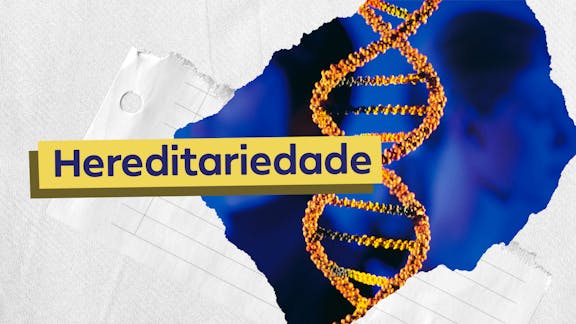Questão 1056e359-93
Prova:UNB 2022
Disciplina:Inglês
Assunto:Vocabulário | Vocabulary
Judge the follow item concerning the ideas and linguistic features of the previous text.
The expression “Broadly speaking” (second paragraph)
indicates that what follows is a general take on the subject,
without considering exceptions or specificities.
Judge the follow item concerning the ideas and linguistic features of the previous text.
The expression “Broadly speaking” (second paragraph)
indicates that what follows is a general take on the subject,
without considering exceptions or specificities.
Freedom is a general term, like liberty, independence,
autonomy, and equality. In reality, freedom cannot be absolute;
no one can be completely free. Your talents, family situation, job,
wealth, cultural norms, and laws against murder, for example,
constrain and circumscribe your choices. And then there is the
freedom of others, which necessarily limits yours.
Broadly speaking, your rights, whatever they may be,
define the limits to your freedom. In the Western tradition of
freedom, these are your civil and political rights, including your
freedom of speech, religion, and association. Some philosophers
see these not only as morally justified rights in themselves, but
also as the means for fulfilling other possible rights, like
happiness. The international justification for your freedom is by
reference to human rights, those due to you as a human being and
object of international conventions. The most basic of all these
rights are those defining what governments cannot do to you. In
effect, these human rights define what many mean by democratic
freedom. Your freedom of thought, expression, religion,
association, is basic, as are the secret ballot, periodic elections,
and the right to representation. In short, these rights say that you
have a right to be free. This is universal: we all have
internationally defined and protected human rights.
Rudolph Joseph Rummel. Why should you be
free?.Internet:<www.hawaii.edu> (adapted).
Freedom is a general term, like liberty, independence,
autonomy, and equality. In reality, freedom cannot be absolute;
no one can be completely free. Your talents, family situation, job,
wealth, cultural norms, and laws against murder, for example,
constrain and circumscribe your choices. And then there is the
freedom of others, which necessarily limits yours.
Broadly speaking, your rights, whatever they may be,
define the limits to your freedom. In the Western tradition of
freedom, these are your civil and political rights, including your
freedom of speech, religion, and association. Some philosophers
see these not only as morally justified rights in themselves, but
also as the means for fulfilling other possible rights, like
happiness.
The international justification for your freedom is by
reference to human rights, those due to you as a human being and
object of international conventions. The most basic of all these
rights are those defining what governments cannot do to you. In
effect, these human rights define what many mean by democratic
freedom. Your freedom of thought, expression, religion,
association, is basic, as are the secret ballot, periodic elections,
and the right to representation. In short, these rights say that you
have a right to be free. This is universal: we all have
internationally defined and protected human rights.
Rudolph Joseph Rummel. Why should you be
free?.Internet:<www.hawaii.edu> (adapted).
C
Certo
E
Errado
Estatísticas
Aulas sobre o assunto
- •
Passado perfeito progressivo | Past perfect continuous
Tempos Verbais | Verb Tenses
2 aulas
Passado perfeito | Past perfect
Tempos Verbais | Verb Tenses
2 aulas
Passado progressivo | Past continuous
Tempos Verbais | Verb Tenses
1 aulas
Presente simples | Simple present
Tempos Verbais | Verb Tenses
2 aulas
Presente progressivo | Present continuous
Tempos Verbais | Verb Tenses
2 aulas
Passado simples | Simple past
Tempos Verbais | Verb Tenses
2 aulas
Futuro simples | Simple future
Tempos Verbais | Verb Tenses
3 aulas
Futuro progressivo | Future continuous
Tempos Verbais | Verb Tenses
2 aulas
Futuro perfeito | Future perfect
Tempos Verbais | Verb Tenses
1 aulas
Presente perfeito | Present perfect
Tempos Verbais | Verb Tenses
3 aulas
Presente perfeito progressivo | Present perfect continuous
Tempos Verbais | Verb Tenses
2 aulas
Futuro perfeito progressivo | Future perfect continuous
Tempos Verbais | Verb Tenses
1 aulas
Artigos definido e indefinidos | Definite and indefinite articles
Determinantes e quantificadores | Determiners and quantifiers
2 aulas
Quantificadores | Quantifiers
Determinantes e quantificadores | Determiners and quantifiers
2 aulas
Distributivos | Distributives
Determinantes e quantificadores | Determiners and quantifiers
2 aulas
Palavras de diferenciação | Difference Words
Determinantes e quantificadores | Determiners and quantifiers
1 aulas
Conjugação verbal | Verb conjugation
Verbos | Verbs
2 aulas
Formas nominais | Nominal forms
Verbos | Verbs
6 aulas
Verbos modais | Modal verbs
Verbos | Verbs
6 aulas
Verbos frasais | Phrasal verbs
Vocabulário | Vocabulary
3 aulas
Prefixos e sufixos | Prefixes and suffixes
Vocabulário | Vocabulary
3 aulas
Formação de palavras | Word formation
Vocabulário | Vocabulary
3 aulas
Palavras cognatas | Cognate words
Vocabulário | Vocabulary
3 aulas
Expressões Idiomáticas | Idioms and Fixed Expressions
Vocabulário | Vocabulary
3 aulas
Oposto | Opposite
Adjetivos | Adjectives
2 aulas
Adjetivos: definição e características | Adjectives: definition and characteristics
Adjetivos | Adjectives
1 aulas
Grau dos adjetivos | Adjective degrees
Adjetivos | Adjectives
1 aulas
Substantivos contáveis e incontáveis | Countable and uncountable
Substantivos: definição e tipos | Nouns: definition and types
2 aulas
Plural dos Substantivos | Regular and Irregular Plural Nouns
Substantivos: definição e tipos | Nouns: definition and types
2 aulas
Orações condicionais | Conditional Clauses
Interpretação de texto | Reading comprehension
6 aulas
Discurso direto e indireto | Reported speech
Interpretação de texto | Reading comprehension
4 aulas
Organização textual | Text organization
Interpretação de texto | Reading comprehension
4 aulas
Palavras-chaves | Key words
Interpretação de texto | Reading comprehension
3 aulas
Figuras de Linguagem | Figure of Speech
Interpretação de texto | Reading comprehension
3 aulas
Estratégias de interpretação | Reading comprehension strategies
Interpretação de texto | Reading comprehension
6 aulas
Estrutura de frases | Sentence structure
Interpretação de texto | Reading comprehension
2 aulas
Posição dos advérbios | Position of adverbs
Advérbios
2 aulas
Tipos de advérbios | Types of adverbs
Advérbios
2 aulas
Advérbios: definição e usos | Adverbs: definition and uses
Advérbios
2 aulas
Pronomes Possessivos Adjetivos| Possessive pronouns adjectives
Pronomes | Pronouns
1 aulas
Pronome demonstrativo | Demonstrative pronoun
Pronomes | Pronouns
1 aulas
Pronome indefinido | Indefinite Pronouns
Pronomes | Pronouns
1 aulas
Pronome possessivo substantivo | Possessive pronoun
Pronomes | Pronouns
1 aulas
Pronome reflexivo | Reflexive Pronoun
Pronomes | Pronouns
2 aulas
Pronomes interrogativos | Question words
Pronomes | Pronouns
1 aulas
Orações Relativas e pronomes relativos | Relative clauses and relative pronouns
Pronomes | Pronouns
2 aulas
Pronomes pessoais | Personal pronouns
Pronomes | Pronouns
2 aulas
Conjunções
2 aulas
Adjetivos | Adjectives
4 aulas
Tempos Verbais | Verb Tenses
23 aulas
Tradução | Translation
2 aulas
Tag questions
1 aulas
Substantivos: definição e tipos | Nouns: definition and types
4 aulas
Interpretação de texto | Reading comprehension
28 aulas
Verbos | Verbs
14 aulas
Determinantes e quantificadores | Determiners and quantifiers
7 aulas
Vocabulário | Vocabulary
15 aulas
Caso genitivo | Genitive case
1 aulas
Aspectos linguísticos | Linguistic aspects
4 aulas
Sinônimos | Synonyms
3 aulas
Pronomes | Pronouns
11 aulas
Preposições | Prepositions
2 aulas
Análise sintática | Syntax Parsing
7 aulas
Advérbios
6 aulas






